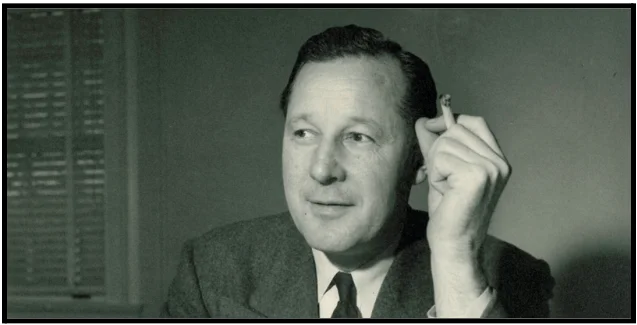Talking Big Ideas.
“Take that first step.”
~ Mohammad Ali
You have a ton of stuff on your plate.
This week I met with several of you who are dealing with health issues, family drama, and problem employees. On top of all your responsibilities at home and at work, many of you have to prepare for formal presentations, media appearances, meetings with donors, and tough conversations with colleagues—and one of you has an interview for a game-changing grant.
Talking Big Ideas is a reader-supported publication. To receive new posts and support my work, consider becoming a free or paid subscriber.
David Allen writes in Getting Things Done that “right now you probably have between thirty and a hundred projects.” He defines a project as “any outcome you’re committed to achieving that will take more than one action step to complete.”
You probably have between 30 and 100 projects right now.
Some of your projects are likely to be delayed or dropped. The ones that make you most uncomfortable may be the most likely to get pushed off. As well as the projects where the next action to take is unclear.
Virtually all public speaking projects will either make you feel uncomfortable or you’ll lack clarity on how to proceed. And so they often end up on the chopping block.
My job is to make sure that doesn’t happen.
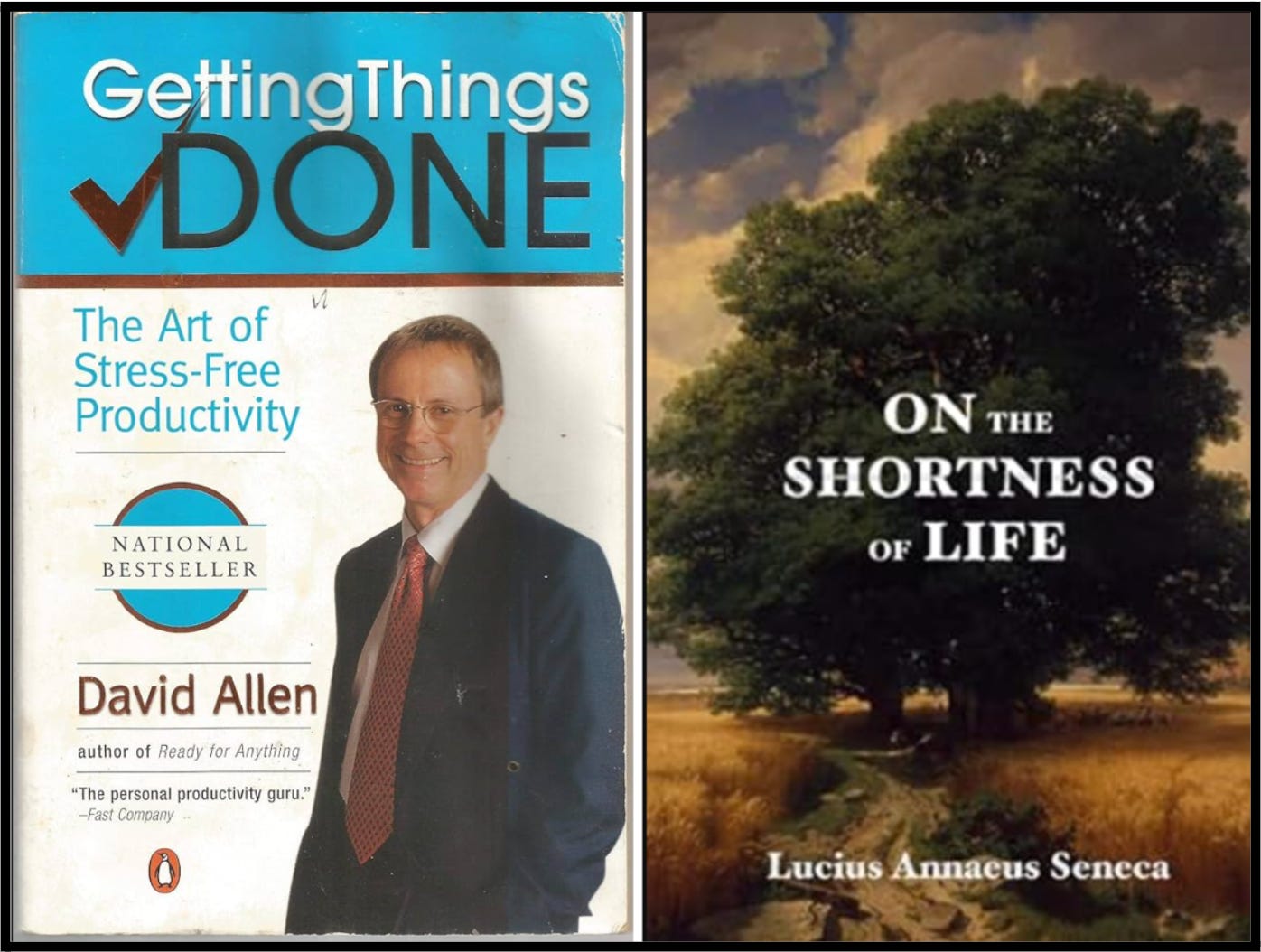
Your Speaking Matters
I’ve met many executives who’ve spent their entire lives hiding from public speaking projects. And many more who enjoy doing them but often feel they don’t have time.
Consider a pitch you crush that secures your organization $500,000 in funding. How much of your time would be worth investing in that pitch?
I worked with a tech start-up that pulled together a team to present a multi-billion dollar project to the prime minister of a country. Their idea could revolutionize how millions of people live. We prepped together, and afterward, the founder texted me: “We crushed it!”
If he succeeds, I wonder, what will be the full long-term value of that presentation?
Of course, most public speaking isn’t so dramatic. But we can still think about the value we will create by crushing our upcoming speeches and conversations.
What will it mean if you really connect the next time you talk with your problem colleague? How about your spouse, your daughter, your best friend?
Regardless of who you are and what you do, the quality of your relationships largely determines the quality of your life – as well as the effectiveness of your organization and the happiness inside your home.
The quality of your relationships
largely determines the quality of your life.
These relationships depend on effective communication skills.
The important speaking projects you have on your plate right now matter. Your keynote talk matters. So do your everyday chats.
Two thousand years ago, the stoic philosopher Seneca wrote a famous essay about how people complain that they don’t have enough time. We live longer today, yet we still make these complaints!
He argued we have plenty of time to do all the things that matter. The problem, Seneca teaches us, is that we tend to spend our time doing things that don’t matter, so we feel like we don’t have enough time for our important projects.
And for the projects we take on, we often allocate our time like this:
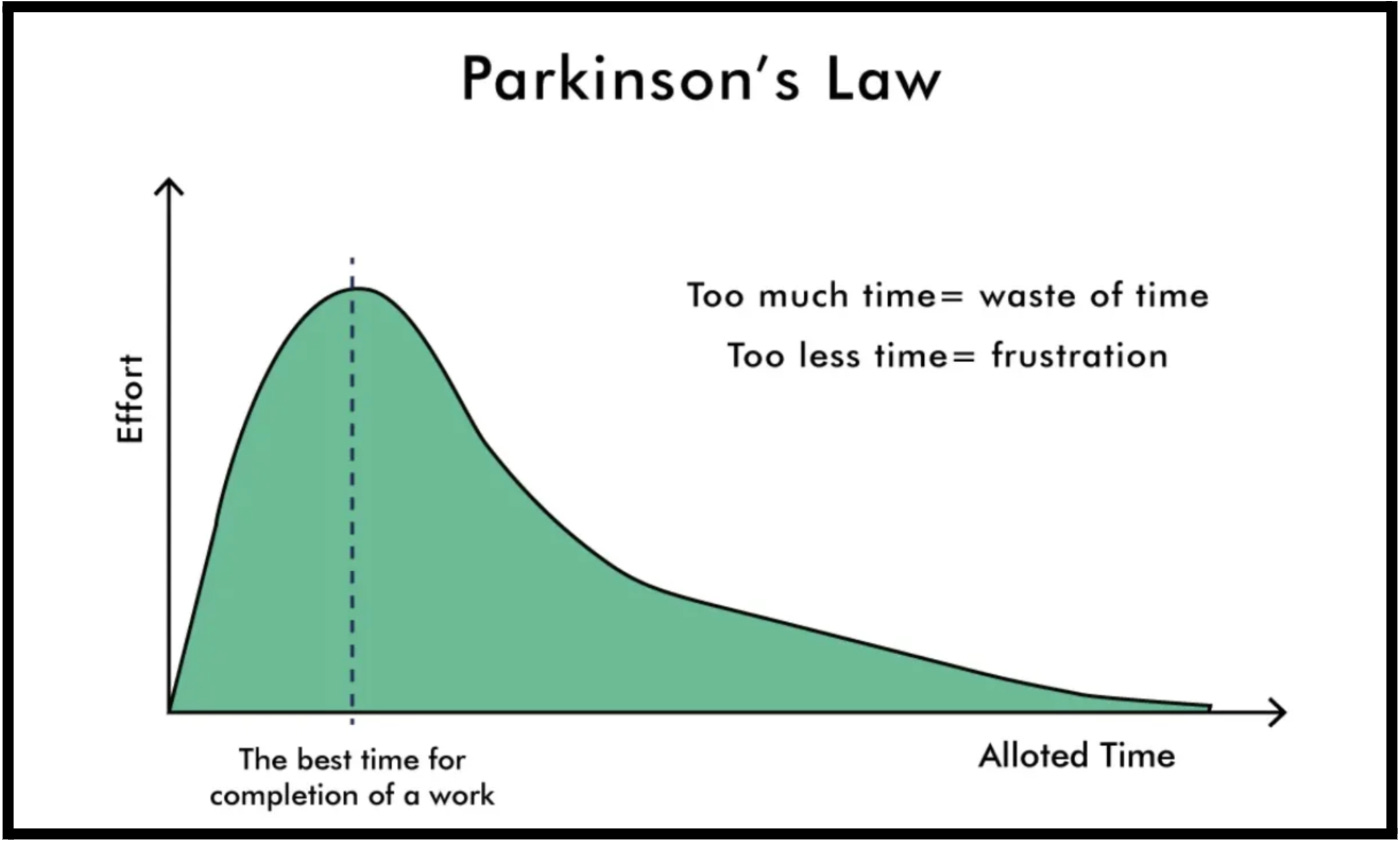
In the 1950s, the British historian Northcote Parkinson wrote a famous essay for The Economist magazine where he described an old lady who takes an entire day to send a postcard. The moral of the story, he says, is that “work expands so as to fill the time available for its completion.”
I like to imagine Parkinson’s Law like this:
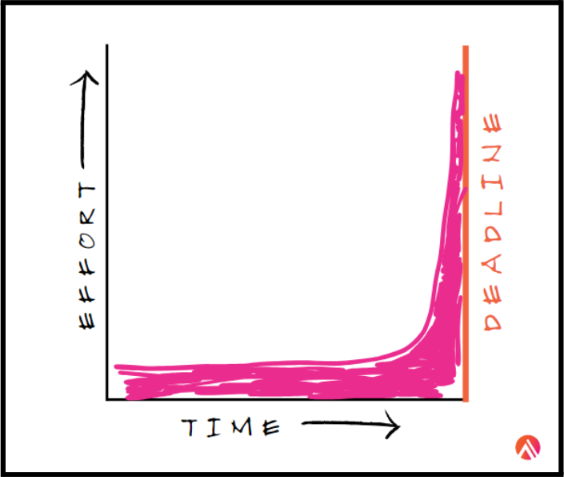
We tend to procrastinate until right before our deadlines. I can’t count how many times I’ve met with a client who scrambled to get their homework done right before our session. I’ve done it probably a hundred times myself just with this newsletter.
Mark Twain wrote: “The secret to getting ahead is getting started. The secret of getting started is breaking your complex overwhelming tasks into small manageable tasks and then starting on the first one.”
There are three quick and simple Gold Standard principles to achieve this.
#1. Block Your Calendar
Researchers at Harvard University show that simply blocking your calendar is a powerful way to change your behavior and make progress. You are significantly more likely to do the things you schedule.
Even three 5-minute blocks a week will yield real progress on your upcoming speech.
Lots of little deadlines encourage you to overcome Parkinson’s Law and nudge you into productive action.
#2. Write Down Your Next Action
James Clear explains a classic study from Great Britain. Participants were divided into three groups:
- Group 1 was the control group. They were told to exercise for two weeks.
- Group 2 completed Group 1’s tasks plus read motivational material.
- Group 3 completed Group 2’s tasks plus wrote down a clear plan for their upcoming exercise sessions.
Group 3 was a runaway success:
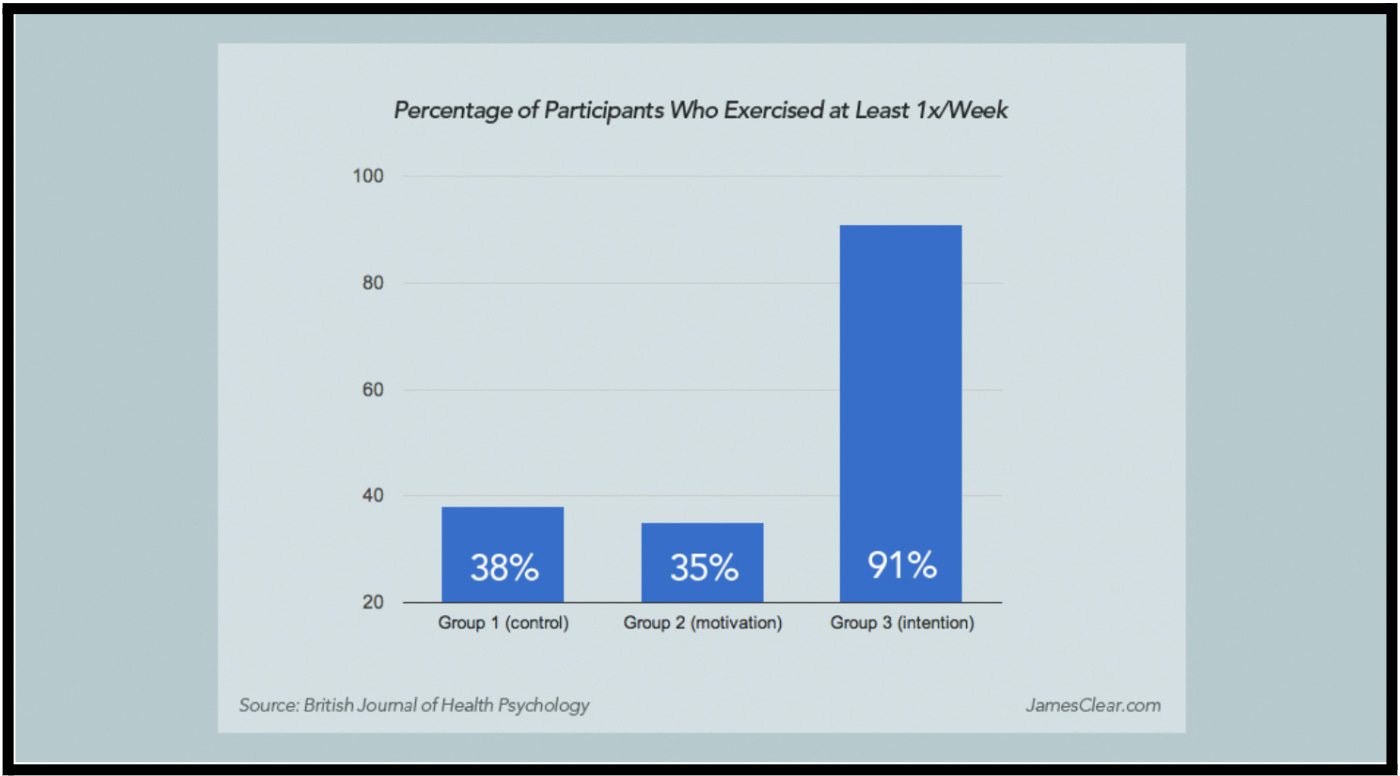
You don’t need motivation; you need clarity. When you write down a clear path forward, you are far more likely to take productive action.
David Allen says the critical question for all projects is, “What’s the next action I need to take to make progress?” This question breaks down the project into small, manageable chunks, offering a clear plan for what to do during your time blocks.
For an upcoming presentation, some examples for your next action may be:
- Clarify the Big Idea I want to drive home
- Talk to Greg about who will be in the audience and what they want to know
- Pull together some books in my library to flip through for guidance and ideas
For a big conversation, perhaps something like this:
- What is one thing they likely want to get off their chest?
- What is the most important thing I want to tell them?
- What is a shared vision we have together?
Clarify and write down your next action item. Add it to your calendar – and then share it with someone else to hold you accountable.
#3. Make Yourself Accountable
You will do better when you have to report on your actions.
I talked about wanting to write for years. But I never made real progress until I started this weekly newsletter and invited all my clients to subscribe. I’ve published an article every week now for three and a half years. Accountability made all the difference in the world for me.
Several studies show that having an accountability buddy substantially increases the likelihood you will make progress on your projects. We do this for all our clients. And Maryrose and I have our own business coach to help us clarify and stay accountable to our commitments.
You don’t need a formal coach. Any reliable friend will do. My dad is my health accountability buddy. Every day I write down my food and exercise, take a picture, and share it with him. Knowing that I have to send him the photo changes my behavior for the better.
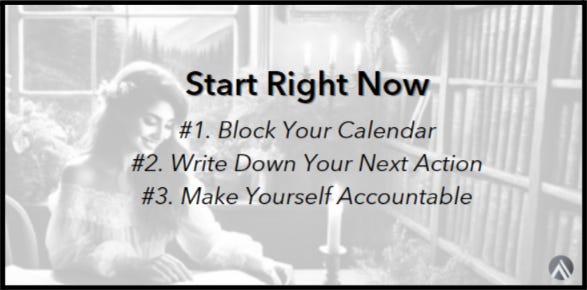
***
The only reason the Ewing School exists is because Maryrose had me apply these three principles.
About eight months after we started dating, we started blocking our calendars for weekly lunchtime walks together. I would talk about my dream of being an entrepreneur, and she would have me clarify action items each week to make progress on realizing my dream.
Together, these three principles work like magic. To succeed on the projects that matter most to you, do this: block your calendar, write down your next actions, and make yourself accountable.
Start right now.


